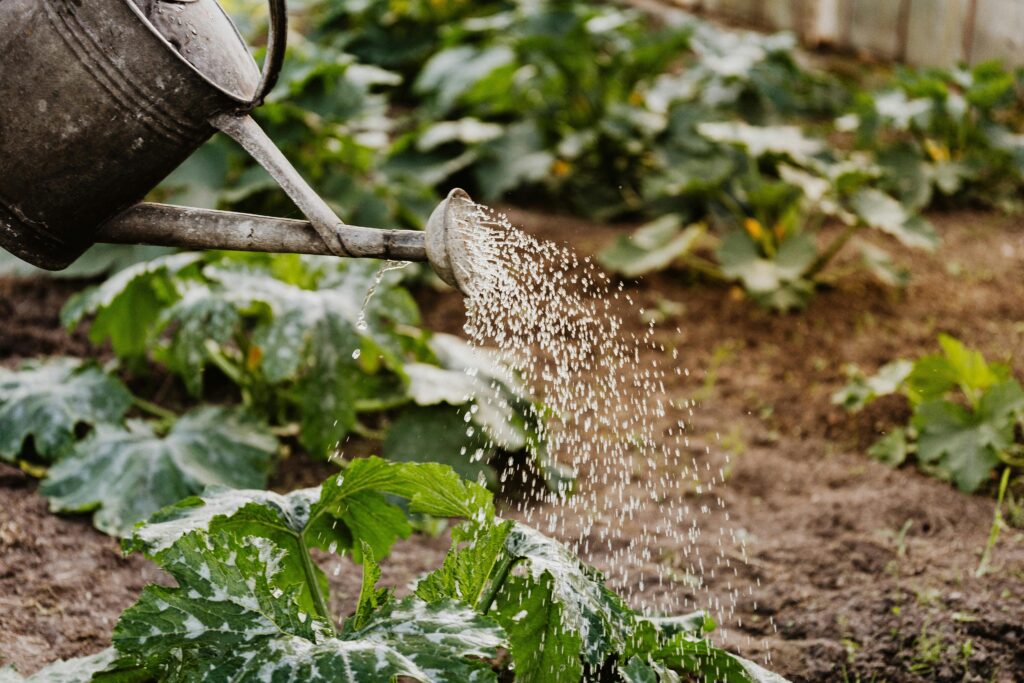Organic gardening has surged in popularity as more people seek sustainable and healthy lifestyles. Whether you have a sprawling backyard or a cozy urban balcony, cultivating your own organic garden can be immensely rewarding. By eschewing synthetic fertilizers and pesticides, organic gardening not only nurtures the soil and surrounding ecosystem but also ensures that the fruits, vegetables, and flowers you grow are free from harmful chemicals. Here are some expert tips to help you embark on your journey to growing vibrant, chemical-free plants.
1. Start with Quality Soil
The foundation of any successful organic garden is nutrient-rich soil. Begin by testing your soil’s pH levels to understand its composition and needs. Opt for organic compost and well-aged manure to enrich the soil with essential nutrients. Regularly amend the soil with compost to maintain its fertility and structure, promoting robust plant growth and resilience against pests and diseases.
2. Plan and Rotate Crops
Effective planning and crop rotation are key strategies in organic gardening. Plan your garden layout to maximize sunlight exposure and airflow while minimizing pest vulnerabilities. Rotate crops annually to prevent soil depletion and inhibit the buildup of pests and diseases that target specific plant families. This practice also promotes biodiversity in your garden, contributing to its overall health and productivity.
3. Embrace Companion Planting
Companion planting involves strategically pairing compatible plant species to enhance growth and deter pests naturally. For example, planting aromatic herbs like basil alongside tomatoes can improve tomato flavor and repel pests like aphids and hornworms. Research companion planting combinations suitable for your region and garden layout to create a harmonious ecosystem where plants support each other’s growth.
4. Practice Integrated Pest Management (IPM)
Organic gardening advocates for proactive pest management without resorting to chemical pesticides. Implement IPM strategies such as introducing beneficial insects like ladybugs and lacewings to prey on garden pests. Use physical barriers like row covers to protect vulnerable plants and regularly inspect your garden for early signs of pest infestation. Maintaining healthy soil and diverse plant species also strengthens plants’ natural resistance to pests.
5. Water Wisely
Conserving water and ensuring efficient irrigation are crucial aspects of organic gardening. Install drip irrigation systems or use soaker hoses to deliver water directly to plant roots, minimizing water loss through evaporation. Water plants deeply and infrequently to encourage robust root growth and drought tolerance. Mulching around plants with organic materials like straw or shredded leaves helps retain soil moisture, suppress weeds, and regulate soil temperature.
6. Weed Control
Effective weed management is essential for maintaining the health and aesthetics of your organic garden. Hand-pulling weeds regularly before they flower and set seed prevents them from competing with your plants for nutrients and water. Apply organic mulches to suppress weed growth and promote soil health. Avoid using chemical herbicides, as they can disrupt the balance of beneficial organisms in the soil and harm non-target plants and wildlife.
7. Harvest and Preserve
Enjoy the fruits of your labor by harvesting crops at their peak ripeness. Regularly harvest herbs and vegetables to encourage continuous production throughout the growing season. Properly storing and preserving surplus produce through canning, freezing, or drying ensures that your organic bounty can be enjoyed long after the harvest season ends. Share your harvest with friends and neighbors, promoting community engagement and appreciation for organic gardening practices.
Conclusion
Organic gardening is more than just a method of growing plants—it’s a commitment to sustainable practices that nurture both the environment and personal well-being. By following these expert tips on soil management, crop rotation, companion planting, integrated pest management, efficient watering, weed control, and harvest preservation, you can cultivate a thriving organic garden that yields healthy, chemical-free plants year after year. Embrace the joy of connecting with nature and savor the delicious rewards of your labor while contributing to a greener, healthier planet through organic gardening.










